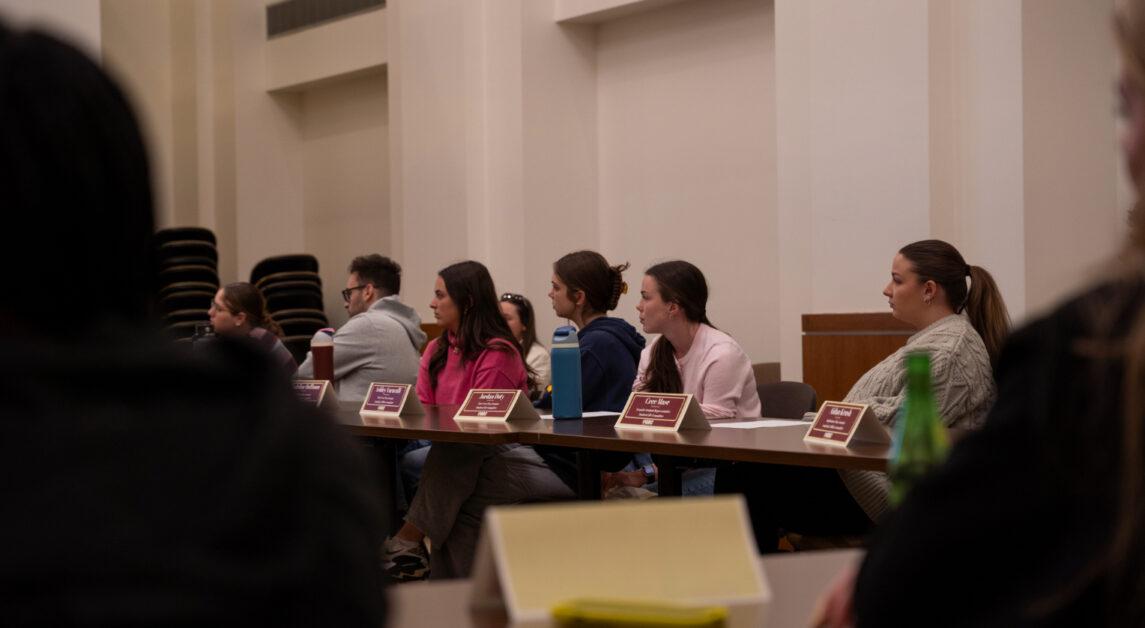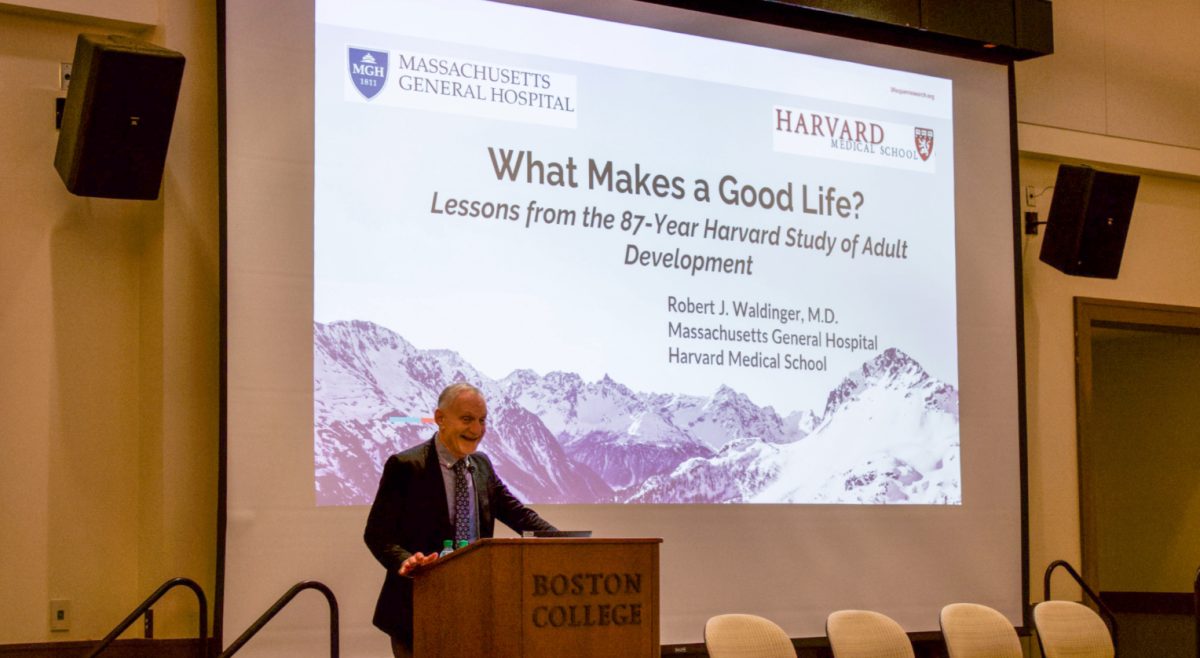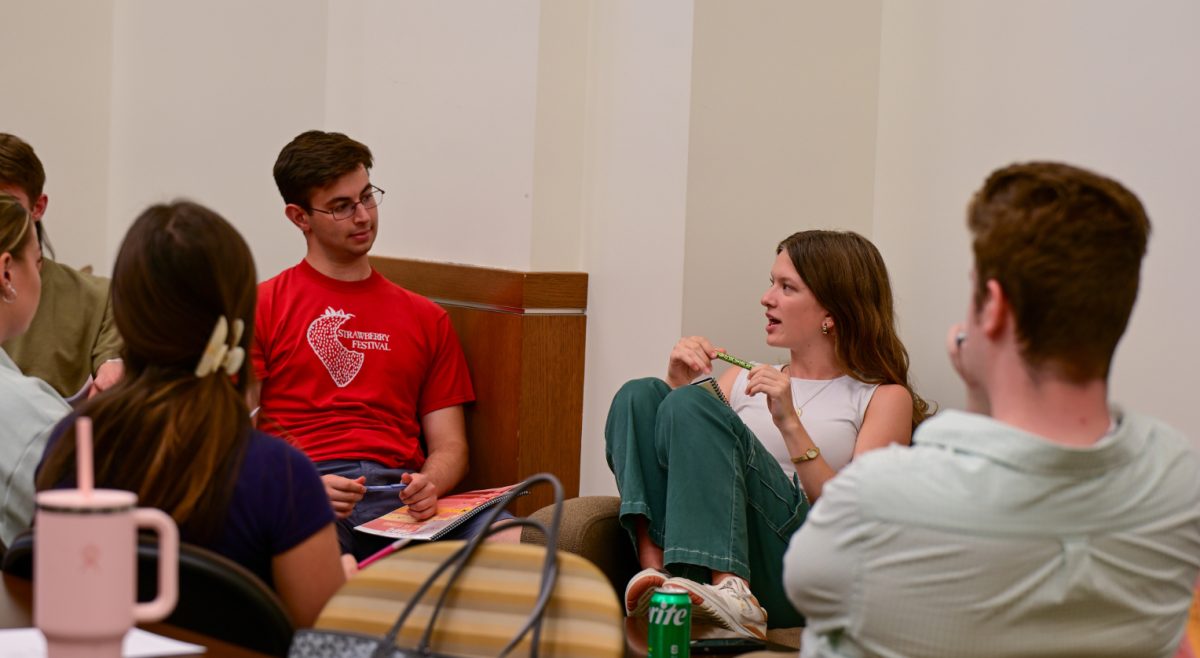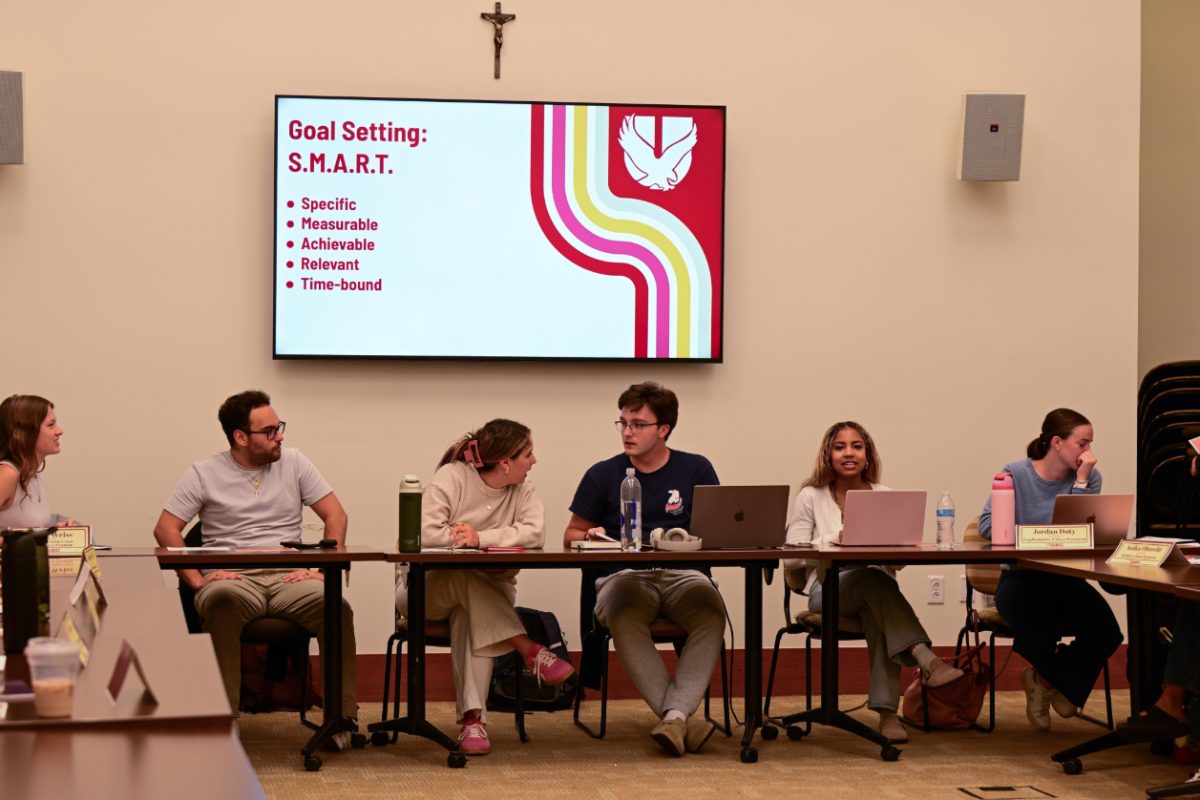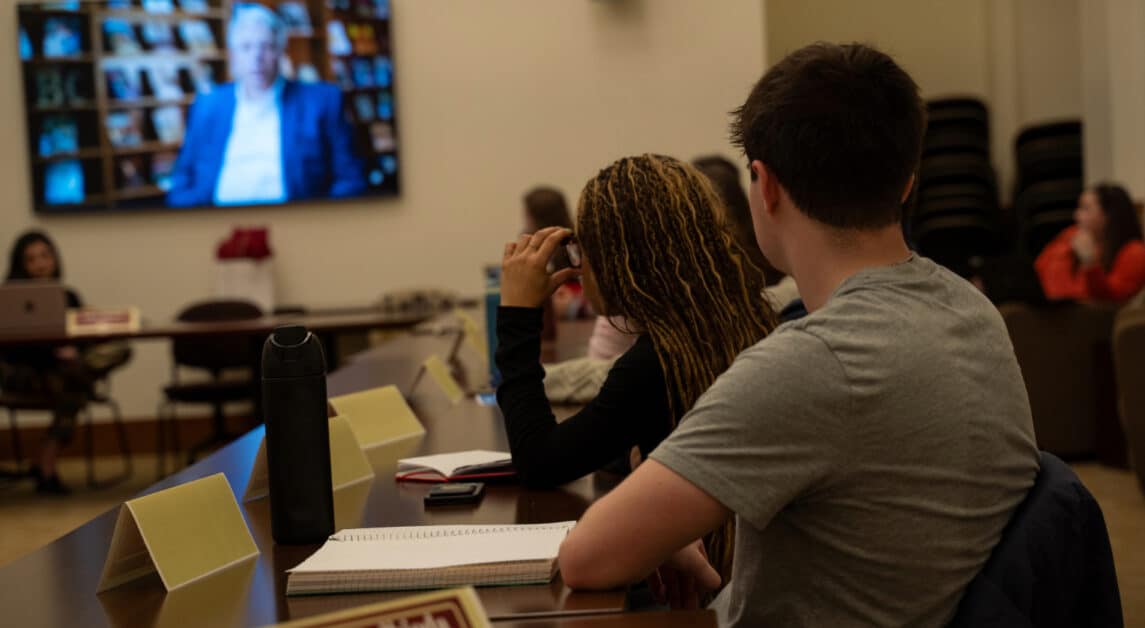The UGBC Senate confirmed incoming executive positions and Senate roles during its final meeting of the 2024–25 academic year Tuesday night. Newly inaugurated UGBC Vice President Reagan Marino, MCAS ’26, presided over the Senate for the first time.
Three new student senators for the Class of 2026 —Chase Gibson, Anika Obrecht, and Maria Musto, all MCAS ’26—were confirmed.
In his acceptance speech, Gibson referenced his recent vice presidential campaign.
“I recently ran a campaign for Reagan’s job specifically—but I’m excited,” Gibson said. “You guys look like a lot of fun.”
Edward Teal, MCAS ’27, was also confirmed as a student senator for the Class of 2027.
The Senate began its session by confirming several executive policy coordinators:
Drew Williams, MCAS ’27 — Environmental Sustainability
Saniya West, MCAS ’27 — Council for Students with Disabilities (CSD)
Nicole Yang, MCAS ’26 — AHANA+ Leadership Council (ALC)
Kendra Preval, MCAS ’27 — Queer Leadership Council (QLC)
Additionally, senators approved nominees for the Senate’s four special interest representative roles:
Cece Mase, MCAS ’26 — Transfer Student Representative
Grace Wei, MCAS ’28 — First-Generation Student Representative
Sophie Wong, MCAS ’28 — International Student Representative
Nina Hemsey, MCAS ’27 — Montserrat Student Representative
Student senators also confirmed leadership for the senate’s three standing committees.
Cristina Gregory, MCAS ’26, was unanimously elected chair of the academic affairs committee (AAC). In her remarks, she emphasized her diverse UGBC experience.
“I think that the different experiences I have helped me make better connections to then help people in my committee and give them the resources that they need,” Gregory said. “If given the opportunity, I would love to be that leader for AAC next year.”
Student Senator Addie Weiss, MCAS ’27, was unanimously confirmed as chair of the student life committee (SLC).
“With two years under my belt, I really have a vision for what I want SLC to continue to look like and how it can grow to become even more all-encompassing,” Weiss said, encouraging fellow senators to consider joining the committee.
Student Senator Will Cortes, MCAS ’28, challenged Will Rafti, MCAS ’27 for the Intersectionality committee chair. Cortes was nominated by Andrew Pauloz, student senator and MCAS ’26, while Maaz Shaikh, student senator and Messina ’26, nominated Rafti.
Both candidates fielded questions from members of the Senate.
Rafti highlighted his four semesters of experience on the committee, which he said gave him a strong understanding of its internal workings.
Cortes, by contrast, emphasized his cross-committee experience and pitched a broader vision for IC collaboration.
“I think it’s really helpful to bring in perspectives from other committees and the work they’ve done,” Cortes said. “We’ll be able to work as a more unified front. We’ll actually be able to do a lot more with the organization.”
A two-thirds majority vote is required to elect a chair. After a first round of voting failed to produce a winner, senators who abstained were urged to cast votes to break the impasse.
Rafti ultimately secured election on the second ballot.
In a statement to The Heights, Cortes said he ran for IC committee chair in hopes of expanding the committee’s reach and building stronger bridges between IC and other UGBC divisions.
“I wanted to bring a different perspective from my time on the student life committee in returning to the Intersectionality Committee,” Cortes wrote. “While I am disappointed with the results tonight, I have full faith in Will’s ability to lead IC next year. I look forward to working with him to make these changes to better both IC and UGBC as a whole.”

